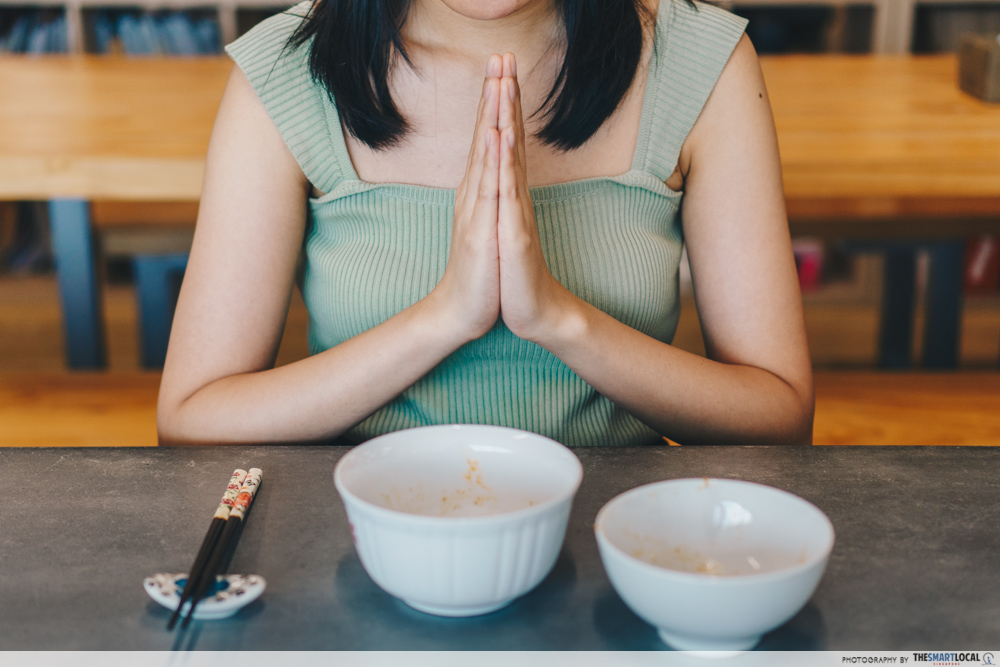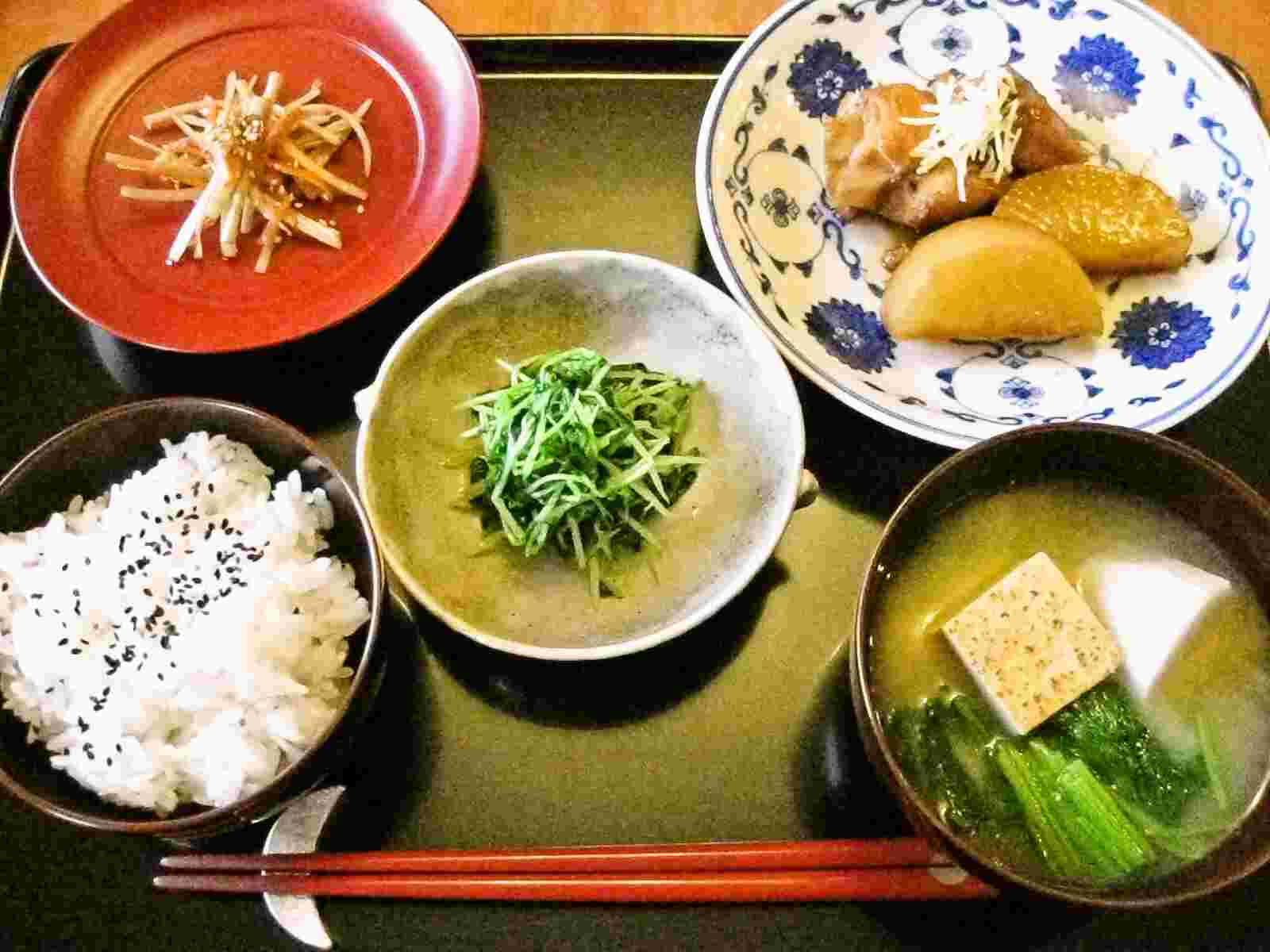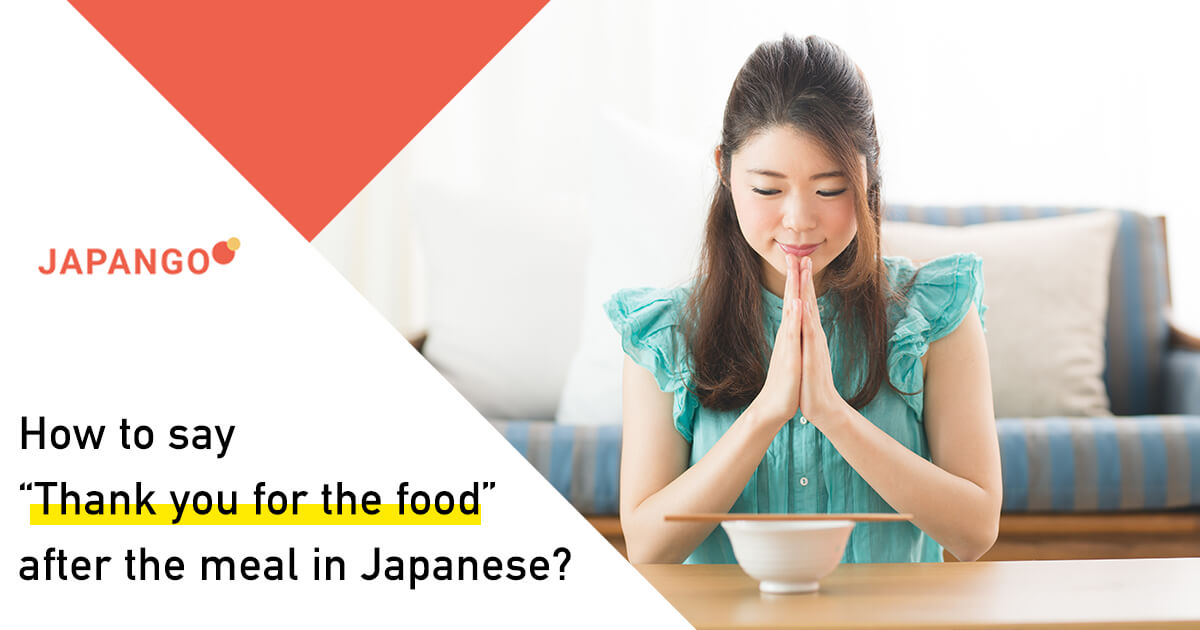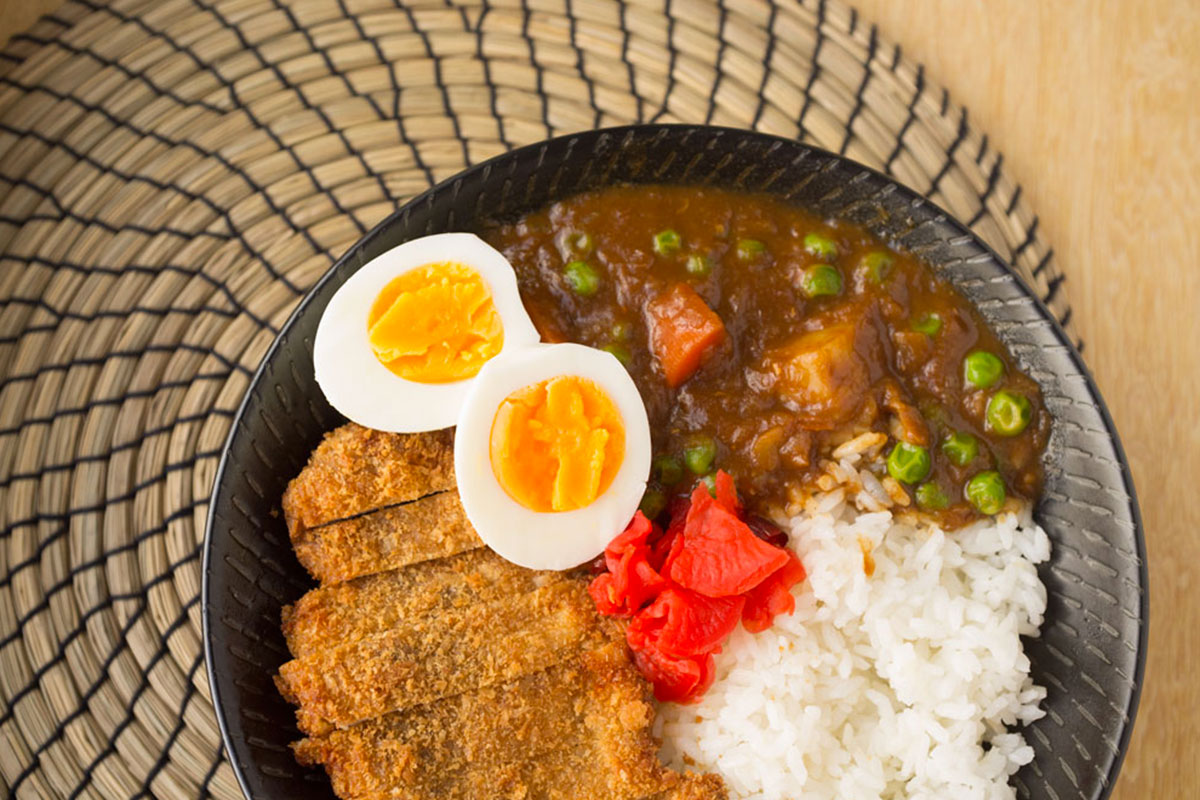
22 Japanese Etiquette To Know When Dining Out In Japan So You Won't Look Like You Have No Table
The Japanese term "Gochisousama" expresses a significant level of appreciation, respect, and gratitude towards those who prepare food. It is commonly used alongside "Itadakimasu" before a meal and "Gochisousama" after a meal as a pair of expressions to show proper table manners. In addition to the post-meal expressions, there are.

Recipes for Tom Japanese Food 101
When saying "thank you for the food", you can use the Japanese phrase "gochisou sama deshita", which literally means "it was a feast" and is used to say "thank you for the meal". Or you can use "oishii" to say "delicious!" For the pronunciation, view this helpful video from Japanesepod101:

How to say "Thank you for the meal" in Korean Learn Language YouTube
Japanese Table Manners Interests › Food and Drink Japanese Table Manners A restaurant with both tables and tatami seating Tables and seating Some restaurants in Japan have low tables and cushions on tatami floor instead of (or in addition to) Western-style chairs and tables. Shoes and slippers have to be removed before stepping on tatami.

Thank You in Japanese 6 Common Phrases Smile Nihongo
The literal translation of "thank you for the food" in Japanese is "gochisou-sama desu" (ごちそうさまです). This phrase is used to express appreciation and gratitude for a meal that someone has prepared and served. It can also be used to show respect for a meal that has been shared with others during special occasions such as birthdays or anniversaries. 3.

“Sushi, thank you for being awesome.” Sushi Comida, Nigiri Sushi, I Love Food, Good Food, Yummy
4. Ways to Express Gratitude for Food in Japan. The most common way to thank someone for providing or preparing a meal is by saying "itadakimasu" before eating it. This phrase literally translates as "I humbly receive" and is often accompanied by a bow or clap of the hands together before beginning to eat the meal.

Learn Japanese (12) "Thank You For The Meal" YouTube
Thank You For This in Japanese. Thank you for this. [te-form verb]くれてありがとう。 [te-form verb] kurete arigatou. To express gratitude specifically for something that someone did for you, you'll need to use the above formation. You need to use this formation when working with verbs.
Thank you for the Meal! Picture Book for Baby, Japanese Text Edition (Paperback) by Yoko Imoto
"Itadakimasu" (頂きます) is the phrase Japanese people usually say before eating. It means "Thank you for the food" but literally translates as "I humbly receive this meal". "Gochisousama deshita" (御馳走様でした) and "Gochisou sama" (御馳走様) also mean "Thank you for the meal/feast" but are said after eating.

Thank You for the Food in Japanese Before & After a Meal AlexRockinJapanese
The Meaning of "Thanks For the Meal" Japanese meals have an opening and closing to them. It is so elegant, gastronomically-speaking. These are appreciative phrases that you say to whomever cooked you a meal, whether at home or in a restaurant.
:max_bytes(150000):strip_icc()/GettyImages-163602832-57958c2a5f9b58173b2abd8b.jpg)
Introduction to Traditional Japanese Meals
"Gochisousama deshita" is a very common Japanese phrase that is used once you have finished your meal. The phrase is directly transltated as "It was a great deal of work (preparing the meal)." So if we try to interprate it in a different way we can think of this translation just like "Thank you for the meal; it was plentiful."

Dinner is the meal everybody is looking forward to the most in the day. It is the biggest and
おみやげ. Japanese confection. わがし. visiting gift. てみやげ. host family. ホストファミリー. "Thank you for the meal!" in 45 More Languages.

How To Say “Thank you for the food” After The Meal In Japanese? Learn Japanese Online for Free
"Thank You" in Japanese: How to Express Your Gratitude in Japanese Arigato! You've probably heard that phrase before, and know the domo arigato meaning from "Mr. Roboto"… But do you know all the ways to say "thank you" in Japanese? Japanese, like English, has different variations of "thank you", like "thanks" and "thank you so much."

Japan 25 Years Later Thanks for the Meal
"Itadakimasu" (頂きます) is the phrase Japanese people usually say before eating. It means "Thank you for the food" but literally translates as "I humbly receive this meal". "Gochisousama deshita" (御馳走様でした) and "Gochisou sama" (御馳走様) also mean "Thank you for the meal/feast" but are said after eating.

Itadakimasu. Thank You for this food. Japanese meal saying. Etsy Japanese phrases, Japanese
In Japan, before you eat a meal, you say "itadakimasu" to express appreciation for those who cooked the food. But what about when you've finished your delicious meal? "Gochisou sama deshita," which means "Thank you for the meal.". ("gochisou" - big meal, "sama" - a supplementary word to attach to a noun and express.

JAPANESE MEAL PREP in Spring! Vegetablerich! Quick & Easy 6 meals! Vegan Japanese recipe
Thank You in Japanese for Special Situations. There are times other phrases fit better than ありがとう. "Thank you for the meal" For example, after a meal, we say. ごちそうさまでした (gochisousamadeshita - Thank you for the meal). It shows gratitude to the people who made the meal and the work that was put into making it.

Thank you for the meal! In Japanese YouTube
Japanese vocabulary related to "Please eat" in Japanese. さあ (Saa | Here we go, come on, well) *Japanese adverb and interjection; どうぞ (Douzo | Please) *Japanese adverb; Expressing how you feel in Japanese. When having meals or the lack thereof, here are different feelings that you might have and what they're called in Japanese.

7Day Easy Japanese Meals To Cheer Up At Home Asian Inspirations
Ways to Say Thank You for the Food in Japanese Itadakimasu - (i-ta-da-ki-ma-su) You can say thank you for the food in Japanese several ways. But first we will focus on the two most direct and formal ways.It is customary to say, "Itadakimasu" (i-ta-da-ki-ma-su), before you eat. This means Let's eat.